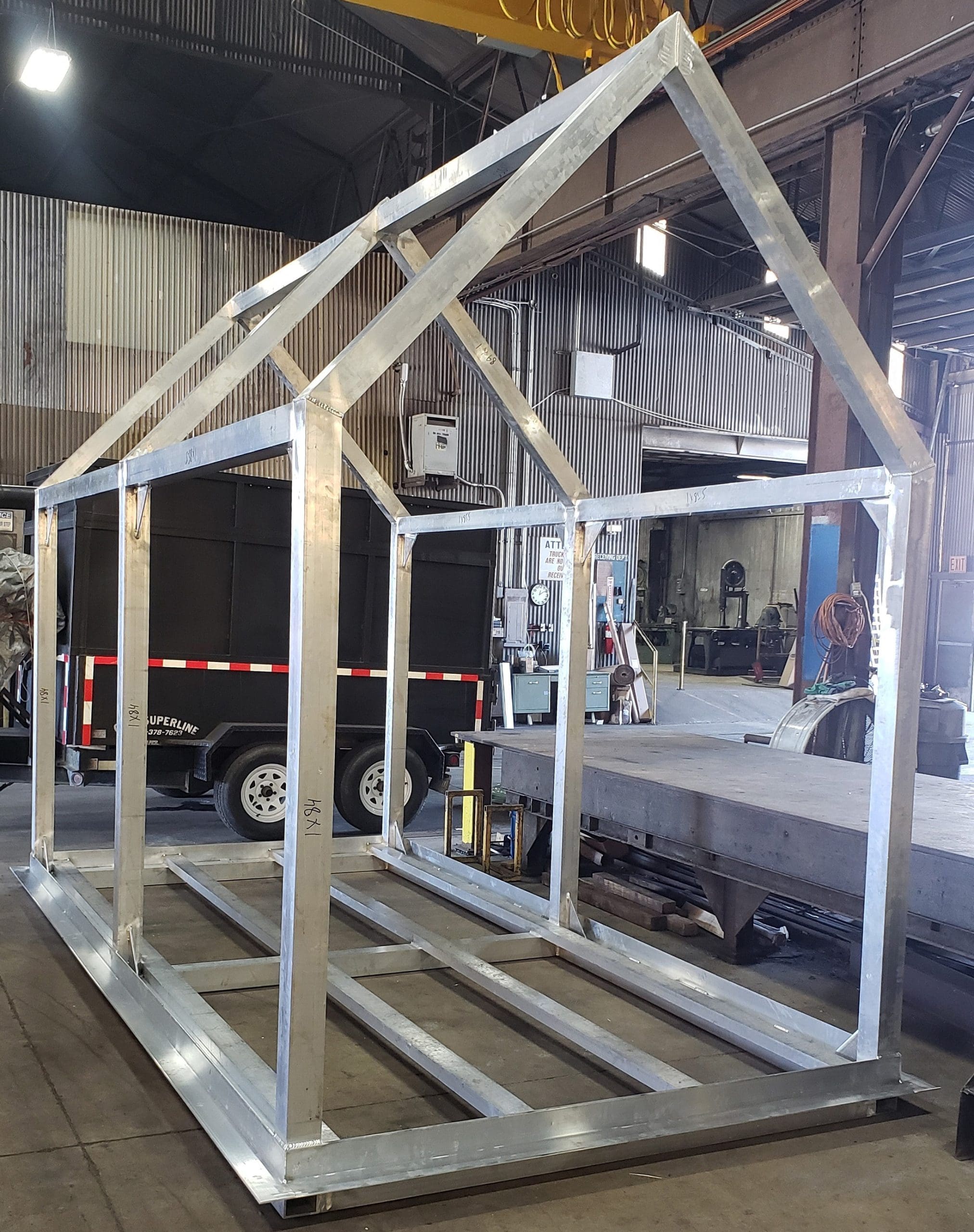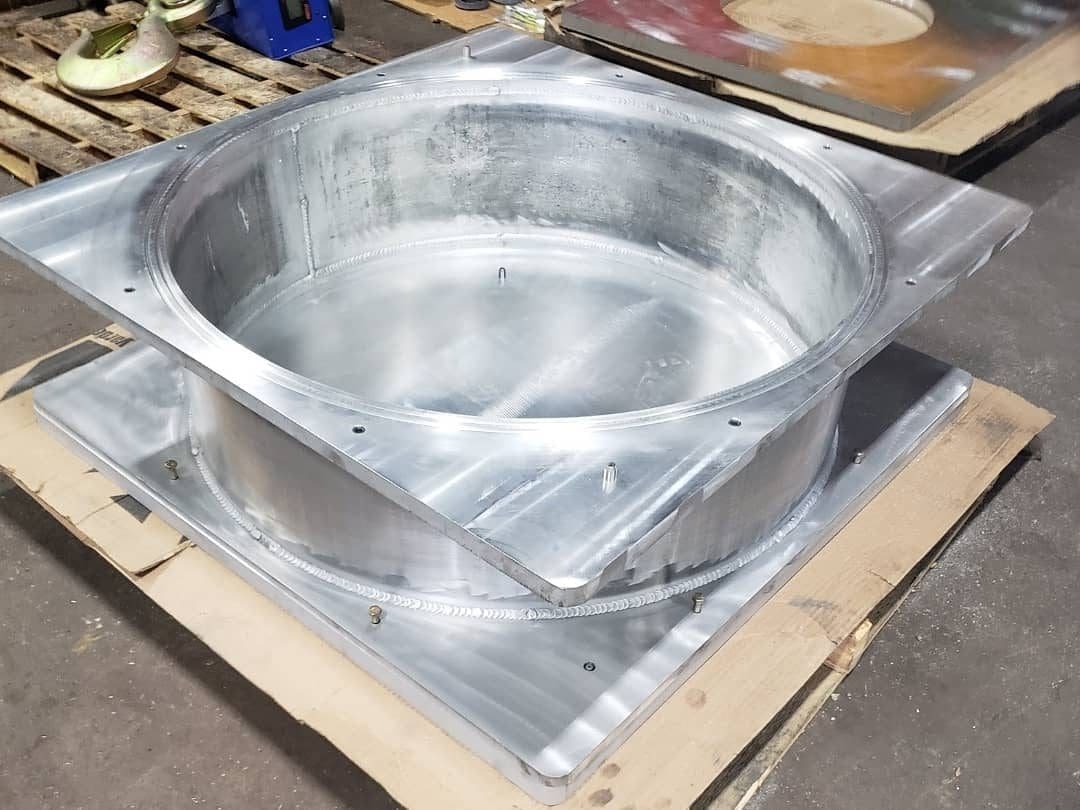Do you struggle with metal equipment failing to meet your needs? Custom aluminum fabrication is key when you want your metal equipment to be low-weight and high-strength. You will be amazed at your metal part’s performance when you add the incredible corrosion resistance, conductivity, and low cost of aluminum forming.
Whether your engineer has recommended aluminum fabrication, or you want to hear directly from the experts at Brandywine Valley Fabricators about the benefits of using this lightweight, malleable metal, we’ve got your budget and the best interest of your project in mind.

Almost every custom metal fabrication project can benefit from the use of aluminum. This metal has long been chosen for its corrosion resistance, lighter weight, and low cost. Here are just a few of the most common instances you can expect to find custom aluminum products used to their fullest:
Of course, this is just a small sampling of what’s possible with custom aluminum fabrication. Aluminum can be used to manufacture artists’ creations, product prototypes, and essential industrial equipment. There’s no telling what our next custom aluminum project will be.
We’ve got plenty of projects for you to view in our photo gallery, and of course, we are here to answer all your questions or chat about your next project. Contact us today!

Aluminum has many advantages; however, aluminum fabricators can encounter many challenges (that can result in imperfections or complete failure) if they’re not experienced in working with this material.
So much more can go wrong when your fabricator isn’t familiar with all the challenges aluminum fabrication can present. Experience and education are the only remedies for these problems, and that’s why it’s so important to choose a fabricator with hands-on experience in aluminum fabrication services.
At Brandywine Valley Fabricators, we carefully select materials, hire only skilled fabricators, supply them with the appropriate equipment, and subject all items to rigorous quality control.
Don’t take your metal fabricator’s expertise and knowledge for granted. We know what can go wrong, so we work proactively to prevent those things. That’s the Brandywine Valley Fabricators’ promise—and that’s what you can expect to get with every project.

What do you prioritize when looking for contractors and service providers? If you are focused on reputation and recognition, consider that we have more than 70 years of experience, and our list of happy customers is constantly growing. We’re located in Coatesville, PA, and serve the entire Delaware Valley region.
Do you prioritize expertise and technical knowledge? We operate a fully-stocked metal fabrication shop and stay up-to-date with the latest advancements in custom metal fabrication and aluminum metallurgy. This ensures faster, cheaper, and more efficient processes for your big project. We work with the following custom fabrication services:
Lastly, you might prioritize trust and cooperation – we are a family-owned business that understands the importance of quality metal products. We give you our full attention when you come to us, taking the time to get to know you and your needs – this ensures we can fabricate better aluminum products and that you have what you need to succeed!
If your fabricator doesn’t regularly work with aluminum, we suggest you find a fabricator who does. This material can be temperamental, requiring the expertise of an expert like Brandywine Valley Fabricators – Custom aluminum fabrication is one of our specialties, and we can provide top-tier results for your most important metallurgical needs! Are you ready to partner with a full-service custom aluminum fabrication shop? Call us today to get a quote for your upcoming project and learn how we can fulfill your most urgent needs. We think you’ll see the difference right away.